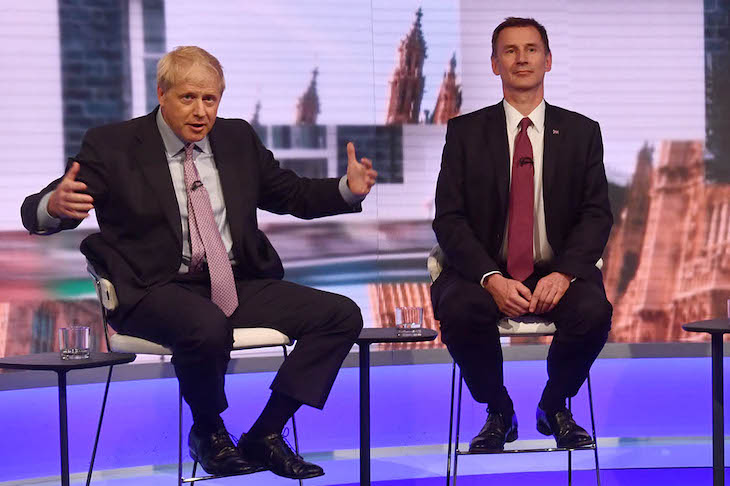Should the Queen appoint as Prime Minister the winner of the Conservative Party leadership election? Not necessarily, argued Professor Meg Russell and Professor Robert Hazell in a recent paper, covered in the Guardian last Sunday. If a handful of Conservative MPs defect, Russell and Hazell say, the winner may not be able to command a majority in the House of Commons, in which case Theresa May should remain in office and supervise a process to find some other person who does command the House’s confidence.
Russell and Hazell go further, and argue that if the next government loses a vote of no confidence in the autumn and an election follows, the new Prime Minister would be constitutionally obliged to apply to the EU for an Article 50 extension.
These are important claims and Russell and Hazell are heavyweight constitutional scholars. Their arguments deserve serious consideration, which we provide in a new paper for Policy Exchange, published today. We argue, first, that Theresa May’s clear constitutional duty is to recommend that the Queen appoint as Prime Minister the winner of the Conservative Party leadership contest. And second, that if the new government lost a vote of no confidence, it would be for the new Prime Minister to decide whether it was his duty to apply to the EU for an Article 50 extension.
In our view, when tackling the issue of the next Prime Minister, Russell and Hazell risk conflating two quite different questions. The first is who is ‘best placed’ to form a government. The second is whether the new Prime Minister would have sufficient support to defeat a vote of no confidence, if one is brought.
The important point to note is that the rule governing the appointment of a Prime Minister does not require that such a person can command an overall majority of the House of Commons. If it did there would never be any minority governments. The test instead asks who is ‘best placed’ to form a government that could command a majority.
The crucial test for whether there continues to be confidence in the government is whether a vote of no confidence is successful. Since the passage of the Fixed-term Parliaments Act 2011, that is the only way to test confidence, and losing such a vote is the only plausible route to an early election if all attempts to form a government fail. In practice, the test is negative rather than positive. Unless and until a new government loses a vote of no confidence, there is a continuing presumption that it does in fact command the confidence of the House.
The winner of the Conservative Party election is almost certainly the person ‘best placed’ to command a majority and so should be appointed Prime Minister. Whether the government he forms is likely to face a vote of no confidence the next day, the same week or at some later point is absolutely not the Queen’s concern.
But what happens if a vote of no confidence is lost later in the year, in the autumn?
Firstly, it’s important to be clear that the current legal default is that the UK will leave the EU (with or without a deal) on 31 October. Nothing else needs to ‘get through’ Parliament for that to happen.
As a general election takes at least seven weeks, the effective deadline for a vote of no confidence that would enable a new government to stop a no-deal Brexit is early September. Russell and Hazell boldly claim that a vote of no confidence later, in the autumn, could still prevent a no-deal exit because the Prime Minister would be obliged by convention to seek a Brexit extension if an election were held. They argue that this is because a no-deal exit would constitute a ‘major policy decision’ which the Cabinet Manual says should not be initiated during an election period.
The correct application of the convention here is not so obvious. It could just as well be argued that the status quo is to leave, in accordance with the default position in the relevant legislation, on 31 October. It would be extending that process and changing that default position which would be a ‘major policy decision’, not the other way round. This might be especially true given the stated policy of the government is not to seek an extension. At a minimum, reasonable people could hold different views on this question and so it would be a matter for the Prime Minister to decide where his duty lay.
Finally, imagine that a cross-party group of MPs were to ‘take control’ and somehow manage to change parliamentary Standing Orders to secure time for, and pass, a Bill mandating the Prime Minister seek an extension. Even then, the EU27 might refuse this extension, particularly if it was being sought by Britain reluctantly. Or perhaps the EU27 could make a counter-offer which the Prime Minister would be entitled to refuse.
For those who wish to avoid a no-deal exit, the ticking of Monsieur Barnier’s clock grows steadily louder. Early September is the effective deadline for any vote of no confidence. If it fails, it’s reasonable to argue that Parliament has backed a no-deal exit, whatever MPs may say inside or outside the Chamber.
Richard Ekins is Head of Policy Exchange’s Judicial Power Project and Associate Professor, University of Oxford. Robert Craig is completing a doctorate on the royal prerogative and teaches law at Durham and LSE






Comments